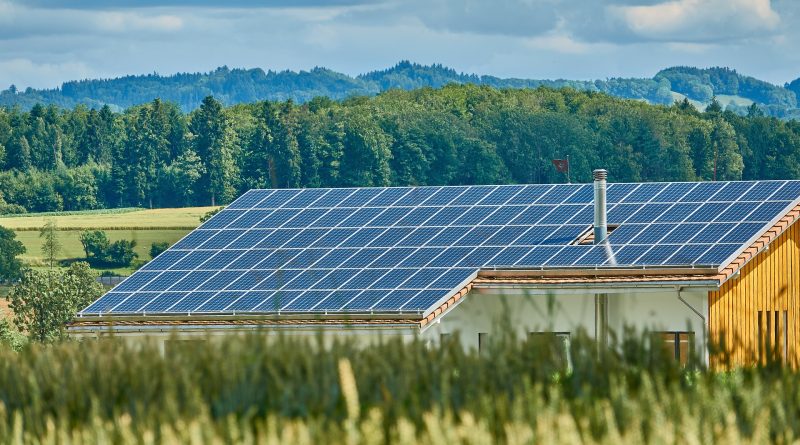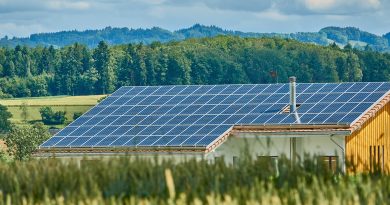Solar Electronics: Off-Grid and On-Grid Solar Inverter
Table of Contents
Solar Electronics: Off-Grid and On-Grid Solar Inverter
In the rapidly evolving world of renewable energy, solar power has emerged as a prominent player. Harnessing the energy of the sun not only helps reduce our carbon footprint but also provides an efficient and sustainable energy source. One crucial component of any solar power system is the solar inverter. In this blog, we will explore the difference between off-grid and on-grid solar inverters and their significance in solar electronics.
Off-Grid Solar Inverter
An off-grid solar inverter, also known as a standalone solar inverter, is designed to provide power in remote locations or areas where utility grid connectivity is unavailable. In off-grid systems, solar panels generate electricity, which is then stored in batteries. The role of the off-grid solar inverter is to convert the direct current (DC) power from the batteries into alternating current (AC) power, suitable for powering household appliances and electronic devices.
Off-grid solar inverters come in various sizes and power ratings to accommodate different energy requirements. They incorporate advanced features such as battery charging and management systems, which ensure optimal battery performance and maximize the utilization of solar energy. These inverters also provide protection against overload, overvoltage, and short circuits, ensuring the safety of the entire system.
On-Grid Solar Inverter
On-grid solar inverters, also referred to as grid-tied inverters, are an integral part of solar power systems connected to the utility grid. Unlike off-grid systems, on-grid solar inverters are not required to store excess energy in batteries since any surplus electricity generated can be fed back into the grid. This excess energy is credited to the system owner through net metering, resulting in reduced electricity bills and potentially even generating revenue.
The primary function of an on-grid solar inverter is to convert the DC power generated by solar panels into AC power that can be directly used by household appliances or supplied to the grid. These inverters are equipped with advanced MPPT (Maximum Power Point Tracking) technology, which optimizes the energy production by tracking the maximum power point of the solar panels, maximizing efficiency.
Key Difference Between Off-Grid and On-Grid Solar Inverters
The main difference between off-grid and on-grid solar inverters lies in their connection to the utility grid and energy storage capabilities. Off-grid inverters are independent systems that require battery storage to provide reliable power without grid connectivity. On the other hand, on-grid solar inverters are designed to seamlessly integrate with the utility grid, allowing for the exchange of excess energy.
Another essential aspect is their operational efficiency. Off-grid inverters are typically more efficient in converting DC to AC power since they cater to standalone systems with limited energy resources. In contrast, on-grid inverters maximize energy production by synchronizing with the grid and optimizing energy usage.
Choosing the Right Solar Inverter
Selecting the appropriate solar inverter for your specific requirements is vital to ensure optimal performance and longevity of your solar power system. Factors such as the location, size of the system, and energy usage patterns play a crucial role in choosing between off-grid and on-grid solar inverters.
If you reside in an area with unreliable grid connectivity or have a remote installation requiring off-grid power, an off-grid solar inverter is the ideal choice. This system allows you to become self-sufficient and generate electricity even in the absence of grid power.
Conversely, if your objective is to reduce your electricity bills, generate revenue, and contribute to a cleaner environment, an on-grid solar inverter is the way to go. By feeding excess energy back into the grid, you leverage the advantages of net metering and potentially become a green energy supplier.
In Conclusion
Enhance your solar system with SolarClue® as we delve into the role of solar inverters. Whether on-grid or off-grid, our inverters ensure efficient power conversion and seamless integration into existing systems. On-grid inverters contribute excess power back to the grid, while advanced hybrid inverters offer backup during outages. Off-grid inverters work with batteries to ensure an uninterrupted power supply. With a focus on system efficiency and reliability, SolarClue® guides you in choosing the right solar inverter. Contact us for personalized recommendations, and let’s elevate your solar experience with cutting-edge inverters for optimal performance and energy efficiency.
Frequently Asked Questions
A solar inverter converts direct current (DC) generated by solar panels into alternating current (AC) used by household appliances, enabling efficient power usage.
On-grid inverters are designed to synchronize with the utility grid, while off-grid inverters work independently to supply power to off-grid systems.
Yes, on-grid inverters can feed surplus energy back into the grid, often earning compensation or credits.
For safety reasons, on-grid systems with traditional inverters shut down during outages. Advanced hybrid inverters with battery storage can provide backup power.
Off-grid inverters work in tandem with batteries to store excess energy, ensuring a consistent power supply during periods of low sunlight or at night.
Yes, solar inverters can be integrated into existing power systems, allowing the utilization of solar energy alongside conventional sources.
Inverters play a crucial role in converting DC power to AC power. High-quality inverters enhance overall system efficiency.
Hybrid inverters switch instantaneously, ensuring a seamless transition between grid and battery power during outages.
Yes, contact SolarClue® for expert advice. Our team evaluates your system requirements, recommending the most suitable on-grid or off-grid solar inverter for optimal performance.
Inverters play a critical role in system reliability. On-grid inverters ensure synchronization with the grid, while off-grid inverters with batteries provide uninterrupted power, enhancing overall reliability.


